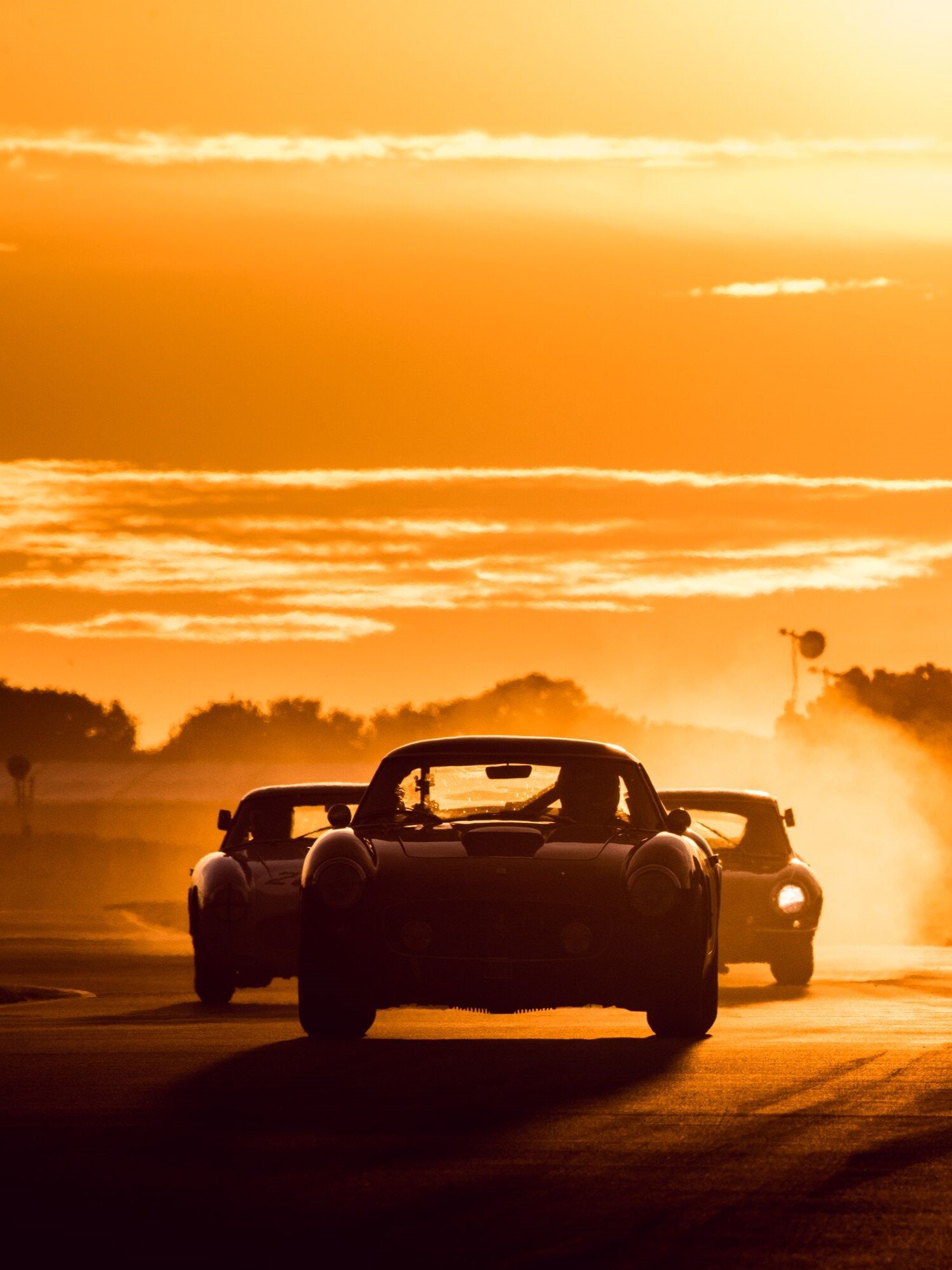2023 international motorsport wrapped: from F1 to Extreme E
New records and soaring virtuoso achievements pockmarked the 2023 international motorsport season. As we head towards Christmas, here’s a wrap of the major highlights.

Formula 1
The old Porsche advert from Le Mans 1983, listing a top-10 results whitewash barring a Sauber-BMW in ninth, could so easily be recycled for the 2023 grand prix season. That’s because Red Bull won 21 of the 22 races. Nobody’s perfect.
True, but Max Verstappen was as close as a racing driver gets, scoring 19 of those victories to set new records for consecutive wins (10) and the number recorded in a single season. He also scorched past the career tallies of both Alain Prost and Sebastian Vettel to sit on 54 and counting. Will he go after Michael Schumacher on 91 and Lewis Hamilton on 103? He’s only 26. Chasing records isn’t really how Verstappen is wired. If those records come, great – but now a three-time world champion, he’ll only race on for as long as gets a kick out of it.
Behind him, team-mate Sergio Pérez started strongly but faded badly, raising questions about his future (he’s safe – for now). Fernando Alonso and Aston Martin set a scorching pace only for the Silverstone team to lose its way. McLaren followed the opposite trend, Lando Norris streaking to a string of second places and rookie Oscar Piastri taking a sprint race win in Qatar.
And Mercedes and Ferrari remained inconsistent and unable to raise a championship challenge to Red Bull, even if Carlos Sainz Jr capitalised brilliantly when the Milton Keynes team had its only off-weekend in Singapore to be the only other winner. Without any sort of doubt over who would be champion, it’s easy to write off the 2023 F1 season as boring – but at least behind the Red Bulls a constantly shifting order of form kept up a fresh narrative to keep us engaged. Most of the time.

World Rally Championship
In 2022 Kalle Rovanperä won six times at just 22 years old to become by far the WRC’s youngest champion. This year, he became champion again – but found it much harder work. Early on he was overshadowed by Toyota team-mate and eight-time champion Sébastien Ogier, despite the 38-year-old insisting on only rallying part-time. Still, with Ogier resisting a bid to equal Sébastien Loeb’s record of nine titles, it was only a matter of time before Rovanperä found his rhythm.
He won three rallies and showed his maturity to bank consistent points – and that’s what eventually made him a comfortable champion. What a shame, then, that he’s now chosen to ‘do an Ogier’ and only compete part-time in 2024. That potentially opens the door to Elfyn Evans to shake off his ‘bridesmaid’ tag and claim his first title. But Ott Tänak, back in a Hyundai after a frustrating campaign for M-Sport, might have something to say about that.
A word on the heavy shadow that hung over the WRC this year. The devastating loss of Craig Breen, killed in an accident during testing in Croatia, left a void that cannot be filled in the close-knit rallying community. He will never be forgotten.

World Endurance Championship
Toyota took another global title double, adding the World Endurance Championship to its WRC crown. But the big one got away at the 100th anniversary running of the Le Mans 24 Hours, as Ferrari landed a fairy-tale win on its works return 50 years since its last attack.
As expected, Le Mans was the motorsport occasion of the year, as manufacturers flocked back thanks to the well-devised Hypercar regulations that have finally brought a convergence of rules in global sports car racing. These are thrilling times.
The Ferrari vs Toyota battle that raged for almost the duration of the 24 hours backed up the hype, proved utterly absorbing and was entirely befitting of the grand occasion. But Toyota would argue the late tweak to the Balance of Performance formula that governs this form of racing was less so, and it did appear politics handed a vital edge to Ferrari. Make no mistake, this was a hard-earned and deserving victory for the new 499P and a driving crew that included Briton James Calado, Ferrari relishing a 10th Le Mans win since its last way back in 1965. But the BoP row cast a shadow – which only lengthened when a further post-Le Mans tweak appeared to neuter the red cars for the rest of the WEC season.

Indycar
His career management could improve, but there’s no doubting Alex Palou’s class as the benchmark of US single-seater racing. The Spaniard scored five victories en route to clinching his second IndyCar crown in three years – all achieved with a round to spare. And he did so despite the summer distraction, for the second year in a row, of an ugly tug of love for his future services. This time, he’ll stay at Chip Ganassi Racing by first choice – to the anger of McLaren to whom his future had appeared betrothed.
Palou also took pole position for the ‘Big One’, the Indianapolis 500 in May, but once again came up short as the race fell to a shootout between Ganassi’s 2022 winner Marcus Ericsson and Josef Newgarden. The American just edged it to clinch a record-extending 19th Indy win for his boss Roger Penske.

Formula E
The electric-powered single-seater series launched into its Gen3 era amid reliability and even safety fears over its new, faster, more efficient cars. But to its credit, Formula E successfully delivered its strongest season yet as Porsche and Jaguar vied for supremacy.
Britain’s Jake Dennis claimed his first world championship with Porsche customer team Andretti, wrapping up the season with relative ease at the London double-header finale. But up to the previous Rome weekend the title had been tough to call as works Jaguar ace Mitch Evans and fellow Kiwi Nick Cassidy, in an Envision entry also powered by the Big Cat powertrain, made concerted bids for their first crowns too. Their collision in Italy, following a mistake under braking by Evans, took the sting out of the fight.

Extreme E
Five teams headed to the December double-header finale in Chile with a mathematical chance of the Extreme E title. Nico Rosberg’s RXR team lifted its second in three years, in a series won 12 months ago by his old adversary Lewis Hamilton’s X44 squad. But only just. Johan Kristoffersson and Mikaela Åhlin-Kottulinsky put in the hard yards by winning the first part of the Chile double-header, only for a two-wheeled moment and puncture for the six-time World Rallycross champion to leave Åhlin-Kottulinsky just about clinging on at the finish of the grand finale.
A distant second to Britain’s Veloce Racing was just enough to pip Carlos Sainz Sr’s entry driven by Mattias Ekström and Laia Sanz, the latter rolling out in the closing stages. Hamilton’s X44 duo, Fraser McConnell and Cristina Gutiérrez, had their own troubles, dropping this year to fourth out of 10 in the off-road electric-powered series. Extreme E will be back next year, but it’s the new hydrogen-powered Extreme H set for 2025 that is likely to carry the eco-racing torch thereafter.
Images courtesy of Motorsport Images
F1
Formula 1
F1 2023
WEC
Le Mans 2023
IndyCar 2023
WRC
WRC 2023
Extreme E 2023
Extreme E
Formula E
Formula E 2023































































